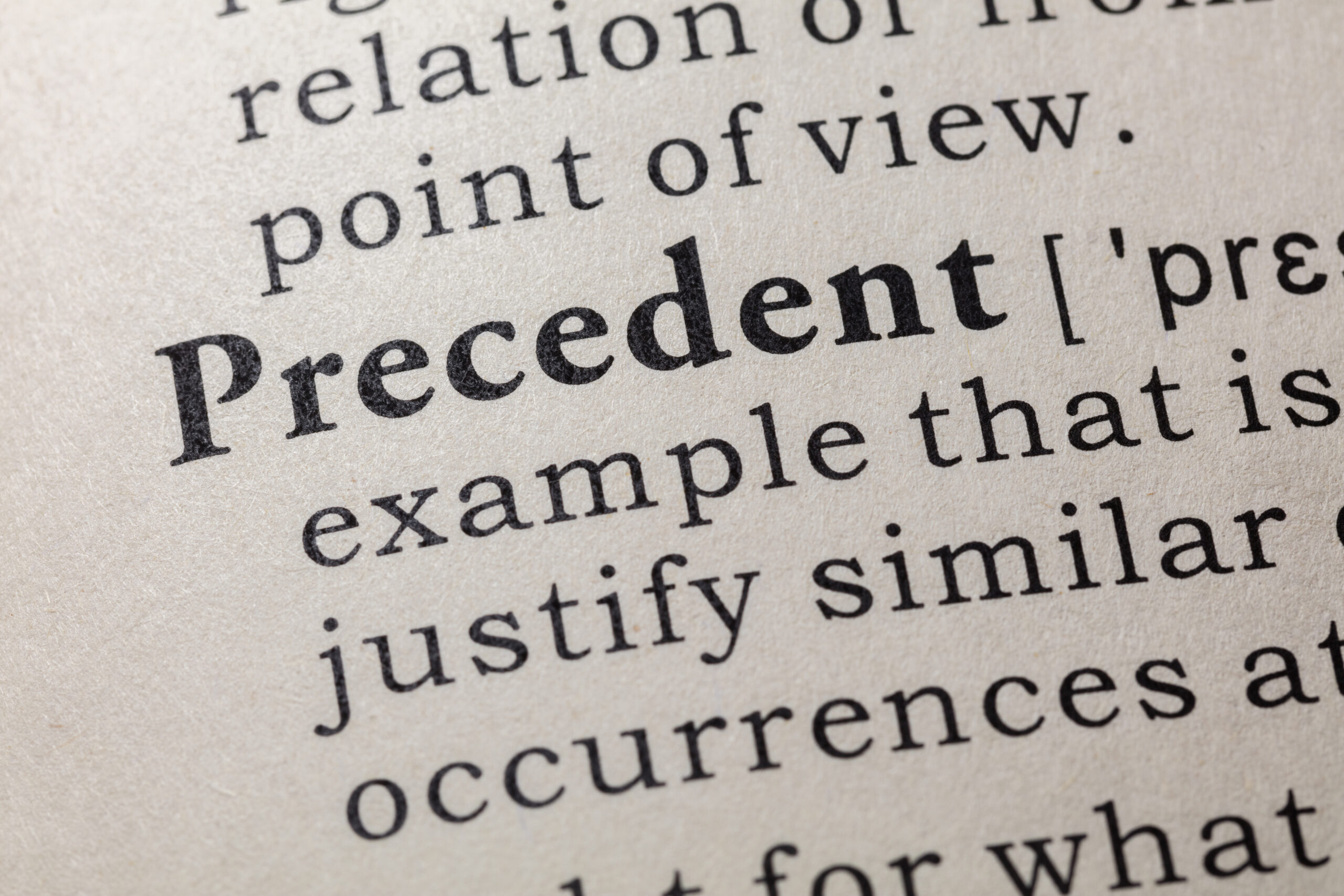A San Bernardino judge was correct in removing a public defender from his client against the defendant’s wishes, the California Court of Appeal ruled Nov. 8.
The published ruling sets precedent for removing attorneys under the recently enacted Racial Justice Act.
In a minority opinion, Appellate Justice Frank Menetrez argued that the public defender’s removal was unnecessary and improper.
The ruling comes from the case of Enrique Sanchez, who was charged Jan. 7, 2023, with five felonies: kidnap to commit robbery/rape, rape by force, injuring a cohabitant, forcible oral copulation, and assault with a deadly weapon.
The District Attorney Victim Advocate told the alleged victim to go home before she testified at the Oct. 13, 2023, preliminary hearing, according to Menetrez’ account of the deputy public defender’s declaration. The alleged victim later told police that the sexual intercourse was consensual and that she was not raped, Menetrez’ account continued.
Also on Oct. 13, the prosecutor and public defender met to discuss a plea bargain. The prosecutor offered a plea deal in which Sanchez would be sentenced to 14 years in prison.
The prosecutor and public defender offered slightly different versions of what happened next.
According to the prosecutor’s declaration, the public defender told the prosecutor, “‘I really don’t care.’”
The prosecutor asked to clarify.
“Read between the lines . . . . I am a white man. What do I care? It’s not my people we are incarcerating,” he continued.
“What do you mean exactly? Are you asking me to give Mr. Sanchez a better deal because he is brown and I am brown?” The prosecutor asked.
“Yes! Exactly! Because you are part of the problem. Look around you, all the people being incarcerated are your people. I will just look like a mean defense attorney. You should be part of the solution,” the defender said.
“It did not matter what the Defendant’s race is, whether they are brown, white, Asian, or Black, a crime has been committed and I am seeking what is fair and just,” the prosecutor said, before leaving, according to his declaration.
Menetrez quoted the defender’s declaration in his ruling:
“’I used sarcasm to make a point about the systemic and pervasive racism that permeates every aspect of our justice system. I sarcastically said, I’m just a white guy why should I care. You are just sending another poor young Hispanic man to prison. I discussed Mr. Sanchez’ race with (the deputy district attorney) because I recognize the history of racial bias, implicit bias and systemic racial injustice in the criminal justice system. I felt like Mr. Sanchez and victim Jane Doe, both Hispanic individuals, had no voice in our justice system. (The deputy district attorney) responded by threatening Mr. Sanchez with life in prison if he did not take the 14-year offer.’ ”
According to both accounts, the public defender asked the prosecutor if she was “going to take it out on his client,” because she was mad at him. The prosecutor responded, “yes.”
On Nov. 29, 2023, the public defender informed San Bernardino Superior Judge Rodney Cortez that he was unsure that the prosecutor would treat Sanchez fairly due to her “yes,” and due to her earlier response that she had not considered that Sanchez is a youth offender, or the impact of racial justice reforms on the case. He asked the prosecutor to recuse voluntarily, and she declined.
On Dec. 4, the prosecutor filed a motion to remove the public defender from the case. Her motion claimed that his statements regarding the 2020 Racial Justice Act created a conflict of interest for himself.
On Dec. 12, on Cortez’ order, the public defender read the prosecutor’s entire declaration to Sanchez. Cortez asked Sanchez whether he wanted to retain the public defender, and Sanchez said yes.
On Jan. 4, Cortez removed the public defender from the case, finding that he “put something in the record that in my mind at least triggers the potential of an issue with the Racial Justice Act.”
Sanchez appealed the ruling on Jan. 16.
Appellate Justice Richard Fields wrote the majority opinion.
Fields ruled that the public defender was impossibly required to investigate himself under the Racial Justice Act. The RJA’s primary clause provides that “(t)he state shall not seek or obtain a criminal conviction or seek, obtain or impose a sentence on the basis of race, ethnicity or national origin.”
“When defense counsel becomes aware of a potential violation of the RJA, counsel has a duty to conduct an investigation of the circumstances surrounding such a claim and make an informed decision with respect to how best to advance his client’s interests based upon the results of that investigation. As the trial court correctly observed, the failure to do so could constitute ineffective assistance of counsel…Thus, because the nature of any investigation in this case necessarily includes an assessment of whether a specific deputy public defender may harbor an unintentional or unconscious implicit bias, it is simply not an inquiry which that specific deputy public defender is equipped to conduct,” Fields wrote.
Even without an actual conflict, Fields found no abuse of discretion in Cortez’ ruling. The decision was made to safeguard the case from any future RJA claim.
“In our view, removal of counsel to prevent a potential violation of the RJA was also within the trial court’s discretion under the circumstances presented in this case,” Fields wrote.
He also quoted the 2012 case People v. Thomas, which established that a defendant does not have the right to a counsel of their choice if they are receiving a public defender.
Menetrez dissented.
“A deputy public defender sought a more favorable plea offer and expressed the view that the criminal justice system is biased against Hispanic defendants like his client. As a result, the district attorney moved to disqualify both the deputy public defender and the entire public defender’s office,” he began.
An RJA violation can be proven in four ways, Menetrez wrote.
First, the defendant can prove a violation by showing the judge, attorney, officer, witness or juror had bias or animus toward the defendant because of their race, ethnicity or national origin. There was no evidence the public defender exhibited bias toward Sanchez, Menetrez wrote—instead, the defender was pointing out racial discrimination in the judicial system.
Second, an RJA violation can be shown if those individuals used racially discriminatory language about the defendant in trial—but trial had not begun.
Third, a violation can be shown by proving the defendant was charged or convicted of a more serious offense than defendants of other races who have engaged in similar conduct and are similarly situated. Sanchez had not been convicted, and the public defender did not charge him, so there was no way the public defender could have violated that section, Menetrez wrote.
Fourth, a defendant can prove a violation by showing a more severe sentence was imposed on the defendant than was imposed on other similarly situated individuals convicted of the same offense, and if the difference is associated with their differing races or ethnicities. Since Sanchez has not been sentenced, that provision could not have been violated, Menetrez wrote.
The majority opinion quoted the first line of the RJA, which says “the state shall not seek or obtain a criminal conviction…,” a line Menetrez references as being impossible to apply to a defending attorney.
“The deputy public defender is not the state and has not sought, obtained, or imposed a conviction or sentence on Sanchez. There is consequently no evidence of a potential violation of the first sentence of Section 745, Subdivision (a), by the deputy public defender,” Menetrez wrote.
Menetrez claimed that, under the majority’s understanding, a motion for relief under the Racial Justice Act would violate the Racial Justice Act.
“(A motion under the RJA) seeks to show that the defendant got a longer sentence than similarly situated defendants of other races and that such racially disparate sentences are frequently imposed, so the defendant should get a more favorable sentence because of his race. If what the deputy public defender did in this case—seek a more favorable sentence for Sanchez on the ground that the criminal justice system is biased against defendants of Sanchez’s race—potentially violates the RJA, then a motion under Subdivision (a)(4)(A) of Section 745 must potentially violate the RJA as well,” Menetrez wrote.
The proceedings against Sanchez have been paused while the appeal was being decided.
Philip Stemler argued for The People.
Edward O’Brien and Timothy Douglass argued for Sanchez.
Presiding Justice Manuel Ramirez joined Fields’ opinion.
Case No. FSB23000105
Appellate Case No. E083015
Read the ruling here








